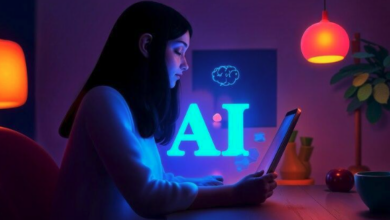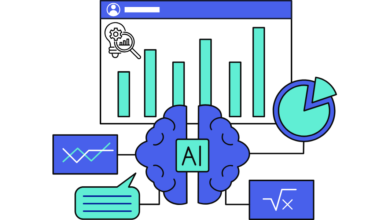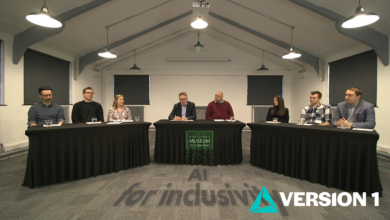The film world is filled with intriguing what-ifs. Actors and producers are still looking at projects that will never be completed or produced by anybody else, while audiences are left wondering what they could have been. But this isn’t good enough for those who profit from movies.
Some producers are even less concerned with how their films will perform in the United States than what happens elsewhere. They wonder if switching A for B distinguishes a flop from a smash hit. They want to know if a film bomb in the United States can still set international box office records. Now, thanks to artificial intelligence, this might be determined.
Many aspects of the film business are already utilizing AI. To anticipate the success of movies, create visuals, select the cast, write scripts, and even assist in film production.
Composing Music
AI is already revolutionizing the music business, and it may also be used in film scores and songs. With reinforcement learning, AI algorithms can evaluate data from various compositions. It may recognize patterns in music scores and learn practices that produce entertaining music and those generally associated with a specific genre. The AI model will generate new musical rhythms based on the analyzed data. It can also create prototypes based on the context or the proper background score genre.
For example, an AI algorithm might identify patterns in jump scare audio that can be used to create models that may be utilized in future movies. Global technology firms are employing AI to develop music or help musicians independently.
Promotion for a movie
Film studios have used AI to promote their films more efficiently. Analyzing a variety of variables such as the size of the audience, the popularity of actors across the world, and film companies’ marketing plans will be put in place according to where audiences anticipate the most interest.
For example, 20th Century Fox used a neural network created by Merlin Video to predict the success of marketing videos. The film studio also utilized IBM’s supercomputer to complete the promotional video for Morgan, starring Lee Weathers and Anna Taylor-Joy.
Predicting the Success
AI can also be utilized to evaluate a film’s script to estimate the profits it will generate. Although algorithmic predictions are not always accurate, major movie studios attract considerable attention.
Warner Bros. has migrated to a Cinelytic AI-centric discussion board to predict the success of its films and box office earnings. 20th Century Fox has incorporated the Merlin system, which uses AI and machine learning to match movies to specific genres and audiences and provide complete demographics for every film.
Choosing Actors
AI technologies speed up the casting process by automatically conducting auditions. According to the stated criteria and textual image description, AI systems search for actors in the database. Filmmakers can also utilize AI to digitally add actors in movies with various emotions and even de-age actors for specific parts. From the richest Hollywood actors to the ones with the most diverse IMDB page, AI can choose the best actor for any project. Filmmakers may also benefit from AI to create different digital characters.
Furthermore, various actors can be compared individually or as a group. With various Actors fashioned into both possibilities and evaluated for this film, which one has the better implications for different regions?
Making Films
Last but not least, AI also produces its own movies. Benjamin AI and Ross Goodwin collaborated to create the science fiction film ‘Zone Out’ in just 48 hours, with assistance from Artificial Intelligence. The movie isn’t destined to win any Oscars, but it’s still an exciting and challenging experience that showcases how AI technology may be utilized to automate and systematize video production.
Movie Editing
Movie previews are the doorway to getting people to the movies. It’s also essential for studios to make trailers that persuade viewers to see the film in a theater. AI may be used to assist editors in developing trailers for motion pictures. The AI algorithm will be able to recognize high-action or high-emotion areas and highlight them for a human editor to generate the last trailer.
AI may also assist film editors and filmmakers in other ways. For instance, AI can help film editors identify main characters and direct them toward the appropriate sections of a feature-length edit.
Writing Script
In the movie industry, computers are becoming more popular for writing screenplays. Machine learning, artificial intelligence algorithms, and computer programming may all be used to create new scripts or update existing ones using information from the internet. A computer program, often known as artificial intelligence (AI), uses a machine-learning algorithm to write new script versions based on many data. The AI algorithm may create new scripts by learning from the outcomes. The analysis of many single variables may allow the AI to grasp, understand, and sort a narrative to create its version of a script with significant story events.
AI may also be used to analyze individual scripts created into a film. The code will be examined, and the algorithm will generate questions and concerns. This saves time and money because the algorithm can analyze scripts more quickly than humans.
Finally, the broader film industry will benefit significantly from artificial intelligence (AI), with a slew of revolutionary applications in filmmaking, including speeding up the whole production process, saving time and money, and boosting earnings. When humans are in control, AI serves as an assistant to the film industry. As a result, producers are searching for methods to combine technologies such as machine learning and artificial intelligence to improve the quality produced by cinema, attract millions of people worldwide, and generate billions of dollars in profits.




